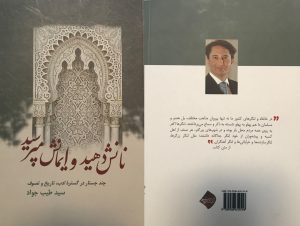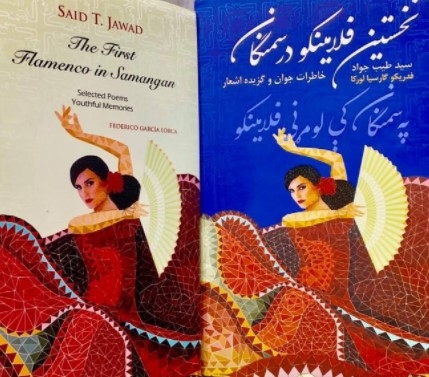Книги
نانش دهید و ایمانش مپرسید
|
تاریخ نگاری پاکیزه از تعصب و پیروی وارسته از تعلق و وابستگی مخصوصا آنگاه که پای پژوهش درباره گروههای دگراندیش و اقوام کوچکتر در میان باشد، در افغانستان مثل سایر جوامع کم رشد و شرقی، سوگمندانه رویش و پویش چندان نداشته است. چنانکه ما نه تنها از نزدیک با تاریخ و تمدن دیروز زردشتیان بلخ و بوداییان بامیان آشنایی شایسته نداریم، بلکه از پیشینه باستانی و توانمندی فرهنگی امروزین اقلیت اسمعیلیه در شمال افغانستان و یا اقوام پاک بیخبریم که این کوچکتر نورستانی در جنوب کشور هم تقریبا کوتاهی و بیخبری ریشه در عوامل مختلف، از جمله مواردی که در این مقال به آنها اشاره خواهد رفت، دارد برای دانلود نسخه کامل کتاب، اینجا کلیک کنید |
THE FIRST FLAMENCO IN SAMANGAN
|
In London, mid 2020, due to the Covid-19 Pandemic, I have found some free time to reassemble and edit my translations of a collection of poems by Federico García Lorca. I asked a few poet friends whether I should publish them. They said, “Why not?” “Would anyone read them?!” They answered, “Probably.” I have also dusted off my own most recent poems. Most of my poems were originally written in English. Some could not be translated eloquently into Persian. A few poems were born in Persian and adamantly resisted translation into English. And sometimes the refinement (if any) of the original English poems would have been lost in a literal translation. Hence, they remained largely as born – in English. Poems with similar themes, but written in Persian, or English are nevertheless conceptions born of a specific mood, milieu and ambiance. They are, therefore, different creations. I couldn’t bring myself to choose between a Persian or an English text, or I would be forcing a text to adapt to the tyranny of another language. So, I kept both. A number of friends contributed to Farsi and Pashto versions of this book. I am very grateful to every one of them. I would like to specially thank my dear friend Adrienne Ross for spending hours going over the English manuscript reading, and editing the text, my colleague Sophie Drake for her valuable research and work on the first draft, and Alexander Poignant and Hashmat Sarvari for their keen efforts to put the manuscript together. |